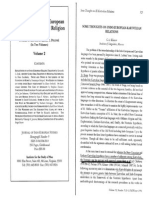
Klimov Kniga Nanoplazmonika
The results of comparative experiments on hydrosol of metals and weak metal saline solution with 0.2 micrometer wavelength spectroscopy have been presented. Quality identity of the spectrum for all examined metals such as Ag, Cu, Na, Ni, Fe, has been defined. In conclusion based upon the similarities between metal colloid solutions and salt solutions with 0.2 micrometre wavelength (λ= 0.2 mkm) extinction spectra, a metal corpuscular and atomic component, as well as low level clusters were found in the solutions.
Obrazci sertifikatov ob okonchanii kursov anglijskogo yazika. Discussion Our two experiments suggest that the appearance of the hypersonic effect markedly changes depending on the frequency of the HFCs when applied along with lower audible components. Univariate ANOVA showed the main effect of the frequency of HFC ( p.
2017 Finlandia Trophy STOLBOVA/KLIMOV FS. (on behalf of JSC 'Mezhdunarodnaya Kniga Musica') Song. Licensed to YouTube by NaxosofAmerica (on behalf of Chandos), and 1 Music Rights Societies.
Facing Death, Confronting Human Nature: The Ascent (Larisa Shepitko, 1977) Larisa Shepitko’s black-and-white feature film Voskhozhdeniye ( The Ascent, 1977) is based on the 1970 novella Sotnikov by the Belarussian writer Vasil Bykov. Set in Nazi-occupied Belarus during World War II, The Ascent follows two Soviet partisans who brave harsh winter landscapes in search of food to sustain their fellow escapees.
The soldiers’ perilous journey, however, leads to a series of fateful encounters, including their capture, interrogation, and torture by Nazi soldiers and collaborators. As the narrative unfolds, complex moral and existential dilemmas arise.
The young and sickly Sotnikov (Boris Plotnikov) and the physically stronger, experienced soldier Rybak (Vladimir Gostyukhin) are ultimately forced to choose between life and death, as survival will only become possible by betrayal. While Shepitko focuses on the extreme physical and psychological experiences of war, the film raises questions that interrogate human nature more broadly. The Ascent marks the highpoint of the Ukrainian-born filmmaker’s career, securing her critical acclaim both in the Soviet Union and abroad.
Despite limited distribution in Soviet cinemas, the film was positively reviewed in major Soviet film magazines and was generally well received by state officials. Xpc rc01 software download. Moreover, The Ascent won the Golden Bear at the 1977 Berlin International Film Festival, after which Shepitko showed the work at film festivals in Telluride and Toronto, and even returned to the Berlinale in 1978 as a member of the international jury. Even though The Ascent and Shepitko’s other masterly films have since been praised by critics and scholars in both the East and the West, they remain far less known and exhibited than those of her contemporaries at the VGIK film school in Moscow – Andrei Tarkovsky, Sergei Parajanov, and her husband Elem Klimov. Like many female filmmakers’, Shepitko’s contribution to the history of cinema has often been downplayed or overlooked, but her extraordinary talent and the significance of her work have recently begun to receive greater recognition. Writing in 2014, for example, David C. Gillespie, declared The Ascent to be “perhaps the most important war film of the 1970s and one of the key films of the entire Brezhnev period.” With Brezhnev’s rise to power in 1964, a long period of cultural stagnation began, defined by a return to strict censorship and creative limitations that had been alleviated under Nikita Khrushchev.
Khrushchev’s Thaw had allowed filmmakers, for the first time, to move away from heroic propaganda narratives about the Great Patriotic War and to explore more personal and unsettling aspects of the war. Despite the shifting political and cultural landscape under Brezhnev, which saw for example Yuri Ozerov’s epic five-part war film series Osvobozhdenie ( Liberation, 1971), The Ascent aligns itself with this earlier line of investigation into the psychological dimension of personal struggle and suffering in war rather than of its battles.
Notably, the only longer combat sequence between Germans and Soviets plays out behind the opening credits. The opening title sequence of The Ascent. The Ascent is uncompromising in its representation of the cruel realities of war. When Rybak and Sotnikov find shelter with Demchika (Lyudmila Polyakova), a young mother living with her three children, they are discovered by a German patrol who take them away to their headquarters in another village, leaving the small children behind with almost no hope of survival. Sotnikov is the first to be interrogated by the Russian Nazi collaborator Portnov (Anatoly Solonitsyn) but refuses to answer any questions, even when he is submitted to brutal torture, as a star is burnt on his chest with a red-hot branding iron.